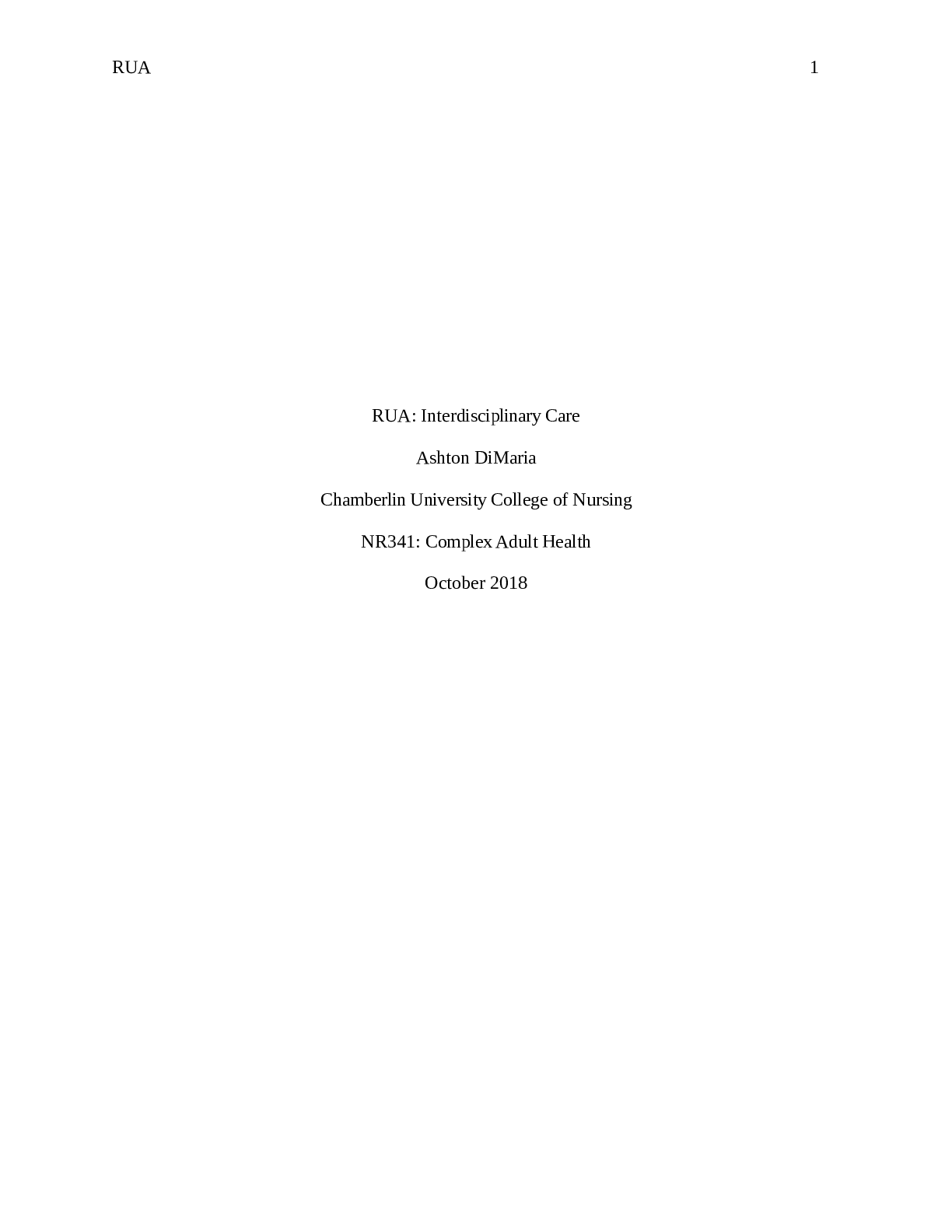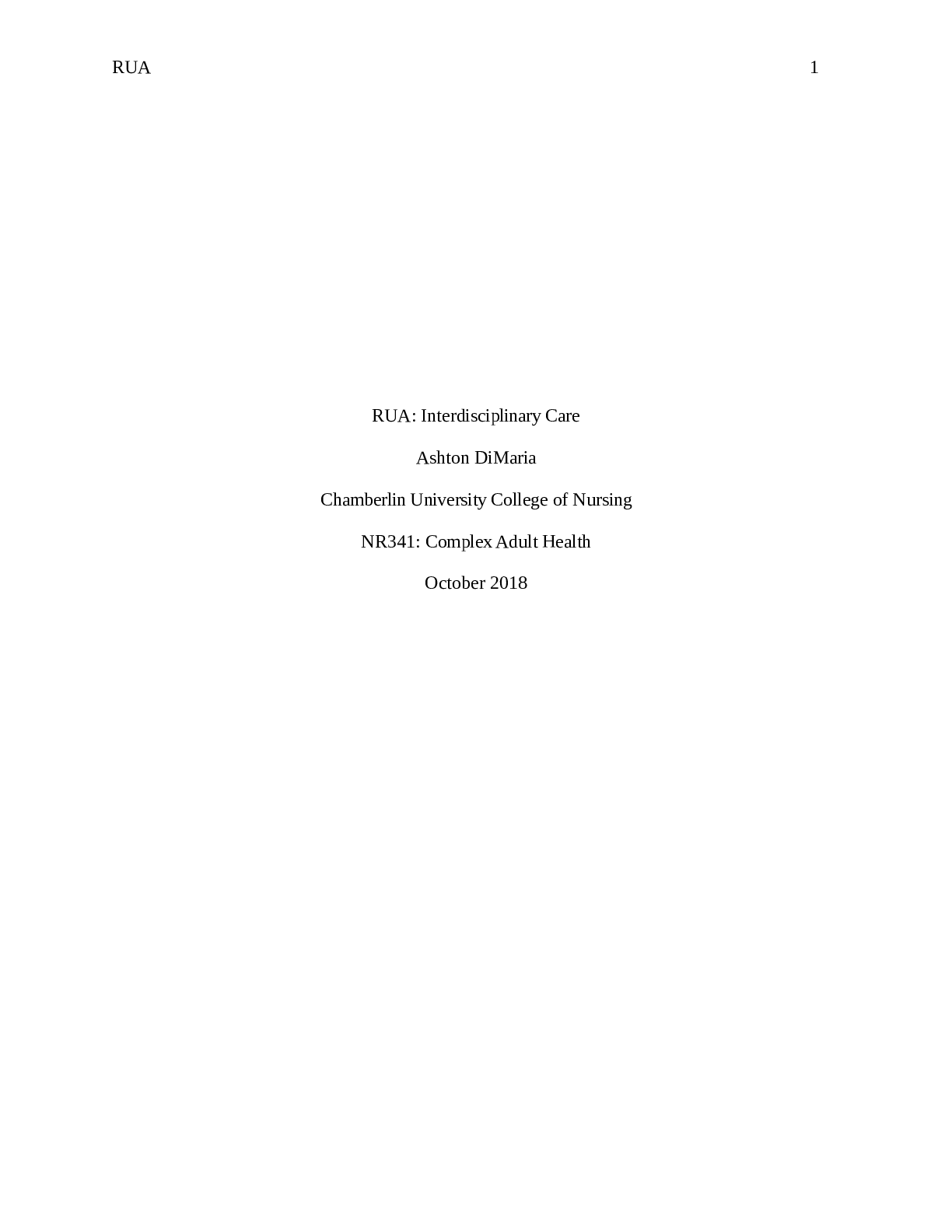Interdisciplinary Care
Background Information Summary
The patient, L.L., is a 57-year-old Caucasian male originally from Czechoslovakia, before its dissolution,
that currently resides in Jacksonville with his wife and step-daughter. LL speaks English, but his wife does not. LL
is an otherwise healthy individual with no past surgical history who’s only prescribed medication is Prevachol
(prevostatin) for recent diagnosis of hyperlipidemia. LL presented to the Emergency Department (ED) with
abdominal pain, diarrhea X4 days, and slight yellowing in color. LL states that he had recently started a new
medication for hyperlipidemia and thought that was the cause, but after 2 days without taking the medication the
problem had not stopped. A CT of the abdomen showed a biliary obstruction. The patient was admitted under the
initial diagnosis of obstructive jaundice on 9/13. A stent was placed in the biliary duct via endoscopic retrograde
cholangiopancreatography (ERCP) on 9/15. After a few days on a med-surg floor the abdominal pain and diarrhea
had not resolved. LL was taken back for another ERCP on 9/18 during which they found that the stent had failed
and was replaced. LL went to interventional radiology (IR) to have a drain placed on 9/19. After the procedure LL
did not recover well from the moderate sedation and required ICU care for Lethargy, respiratory distress, and
hypotension. Increased work of breathing, a GCS of 8 and systolic BP less than 90 were noted upon arrival to the
ICU. With time LL’s GCS improved to 15 but his increased work of breathing continued as well as the
hypotension. LL had an arterial line placed for closer hemodynamic monitoring and a right subclavian triple lumen
catheter was placed for central access. LL was started on Vasopressin (Vasostrict), which was unsuccessful. He was
then started on Norepinephrine (Levophed), which was titrated up to its maximum dose before increasing LL’s
blood pressure to a MAP greater than 65. A fever developed over time and LL’s lab values began to indicate sepsis.
LL eventually was unable to protect his airway and was intubated late 9/19. The nurse also brought to the team’s
attention that LL had not produced any urine out of his Foley catheter since returning from IR. Both acute
respiratory distress syndrome (ARDS) and acute kidney injury (AKI) indicate the start of multiple organ
dysfunction syndrome (MODS). Pairing that with the hypotension it is apparent that LL was now septic. LL had a
ULDALL catheter placed for access and was also started on CRRT on 9/20 for the AKI. I was present on 9/21 for
care of LL. During the day of care LL was responsive to voice and able to follow simple commands. He required
only pressure support from the ventilator breathing 18-20 breaths per minute on his own. He was receiving 50%
FiO2, 8 mmHg of PEEP and 12 mmHg above PEEP for support of inspiration. His blood pressures throughout the
RUA 3
day are noted in Table 1 below. These pressures were indicative of weaning LL to lower infusion rates of Levophed
throughout the day showing improvement in hemodynamic stability. LL had a Dobhoff tube placed during the day
of 9/20 and was receiving Isosource tube feed at 51mL/hr with 20mL flushes of water every 2 hours. LL’s abdomen
is rounded but soft, has active bowel sounds, and has had multiple small, smear bowel movements consistent with
the lack of intake received early on in care. LL’s biliary drain has had very little output. LL continued to have no
output from his Foley catheter. LL’s skin was with no breakdown, was cool, and capillary refill was less than 3
seconds. LL has a ULDALL in the left femoral vein, right subclavian triple lumen catheter, right upper arm
midline, and right lower arm peripheral IV. All lines are patent and have clean, dry, and intact dressings.
Table 1: Hourly Vitals
Read More


